I post daily on IG: study_w_rainbow || use Anna Archive if you’re any kind of student 📗🍃
Don't wanna be here? Send us removal request.
Text
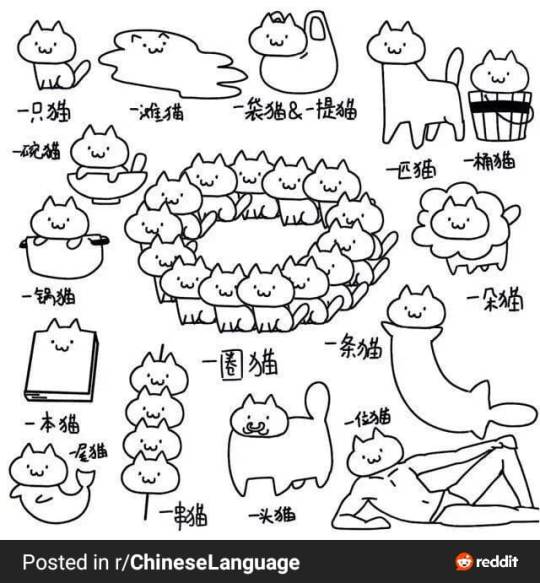
A classmate shared this on our whatsapp group.
The teacher's comment:

"As everyone knows, cats are liquid"
96 notes
·
View notes
Text
Advice I would give my past self about studying Chinese

Recently I've been reflecting on my Chinese learning journey and how far I've come. If I could go back in time, these are 10 things I would tell my past self. A few are specific to Chinese, but most can apply to any language
It will get so much easier to learn new characters. I remember feeling overwhelmed because learning new characters was a painful process. Now when I encounter a new character, I can remember it with relative ease—it’s just a new combination of familiar components.
Don't feel bad about having uneven development in different skills. My listening and reading are significantly stronger than my speaking and writing. It’s super common and nothing to be ashamed of.
The best way to get over being too embarrassed to speak is to experience some embarrassment and realize it’s not a big deal. I used to be so afraid of making mistakes that I would avoid speaking in class. It was only by being forced to speak that I got over it. I'm much better for it!
It’s impossible to learn everything, and time is limited. You have to prioritize. You probably don’t need to know how to say “pawnshop” in Chinese, and trying to jam your head full of 100 words you saw once won’t work. They won’t stick.
It will actually be harder to read pinyin than to read characters at some point. When I helped a friend with a script for her Chinese class, I really struggled because she had written it entirely in pinyin. I had to write out the characters to read without stumbling! I know characters are daunting for beginners, but trust me, you will get used to them.
If you haven’t practiced or learned something, of course you won’t be good at it. I remember feeling so frustrated trying to navigate Chinese websites for the first time. In retrospect, obviously, I was going to struggle with something completely new to me!
If something isn’t sticking, move on. Why waste time on a word that’s not clicking when you could be learning five new ones? It will only result in unnecessary frustration. So unless you need to know it for your class or a proficiency test, drop it and move on.
Don’t beat yourself up when you have trouble understanding music, literature, different accents, etc. These can be challenging even in your native language. Of course you’re going to struggle more in a new language.
It's worth it to pay attention to things like stroke order and tones from the start so you don't form bad habits. Don’t stress about get it perfect, but it’s easier to do it right the first time than to have to correct your bad habits in the future.
Instead of feeling overwhelmed by all that you don’t know, learn how to express yourself with what you do know. It’s truly its own skill that requires practice. After all, in life you can’t always stop and pull out a dictionary.
I started learning Chinese a really long time ago, but I became more serious about it in 2018, so 5 1/2 years ago. I'm very proud of how far I've come, but I still have a long way to go! I look forward to revisiting this post in another couple of years 😊
645 notes
·
View notes
Text
chinese art compliments/replies
as a follow up to my post on online drawing vocab, here is a collection of comments you can use to compliment others' art :-)
the basics
喜欢 [xǐhuān] - i like it
��好看 [hǎohǎo kàn] - looks good
厉害 [lìhài] - amazing
好漂亮/帥/美 [piàoliang/shuài/měi] - so pretty/handsome/beautiful
太有才了 [tài yǒu cáile] - so talented (similarily, 画画天才 => drawing genius)
好神 [hǎo shén] - godly
神迹 [shén jī] - miraculous
仙品 [xiān pǐn] - high-quality product
好鮮活 [xiān huó] - vivid/lifelike
it’s cute
可爱晕了 [kě'ài yūnle] - so cute i fainted
可爱死了 [kě'ài sǐle] - so cute I died
可爱鼠了 [kě'ài shǔle] - so cute I died (in a cutesy/meme way)
卡瓦 [kǎ wǎ] - kawaii
好米 [hǎo mǐ] - so cute/beautiful
太萌了 [tài méngle] - so adorable (originating from japanese word moe - 萌え, lots of different meanings, but mostly refers to happiness you feel when you see something really cute), can be used like 萌到我了/被萌晕/心被萌化了
basically any XX死了/XX暈了/XX炸了 comment works
expletives
我去 [wǒ qù] - damn
卧槽/我草/wc [wò cāo] - censored vers of 我操 => oh fuck
牛逼 [niú bī] - (fucking) awesome, usually just use 牛
exclamatives
哇/哇塞 [wasāi] - wow
啊啊啊啊 - aaaaaa
哇啊啊啊 - wahhhh
responding to compliments
被老師跨了,能力暴增 [kuà...bào zēng] - (if responding to commenter who's also an artist) compliments from teacher make my ability surge
爱您主人 - love u op (主人 refers to original commenter), can also just use 愛你
嘿嘿谢谢喜欢 - hehe ty for liking
比心 [bǐ xīn]- finger heart
送愛 [sòng ài] - sending love
亲亲 [qīn qīn] - kiss kiss
questions
可以当头像吗 [tóuxiàng] - can I make it my pfp
可以自印吗 [zì yìn] - can I print it out
可以收集吗 [shōují] - can I save it
求原图 [qiú yuán tú] - original image pls
这么时候接稿 [jiē gǎo]- when will you open commissions
misc.
抱走/拿走 [bào/ná zǒu] - carrying/taking it away
蹲蹲 [dūn dūn] - if someone has posted a WIP, waiting (for the finished piece/shop listing), direct trans. = squatting
985 notes
·
View notes
Text
Chinese Ethnic Minority Literature
I just finished taking an incredibly eye-opening class about Chinese ethnic minority literature. China has a thriving minority literature scene, and it's absolutely fascinating and full of interesting works, so I wanted to share some of the authors that I learned about this semester! This is, obviously, an incomplete list-- it's pretty heavily biased towards what we read about in class, and there's probably a lot I've missed!
For any authors with full works that have been translated into English, I've listed it under their names. Some other authors may also have poems or short stories published in translation online or in anthologies.
Hani 哈尼
Mo Du 莫獨 (b. 1963) - poems
Hui 回族
Huo Da 霍達 (b. 1945) - novels
The Jade King: History of a Chinese Muslim Family (1992)
Zhang Chengzhi 張承志 (b. 1948) -novels, short stories
The Black Steed (1990)
Korean 朝鮮族
Jin Renshun 金仁順 (b. 1970) - novels, short stories
Jin Wenxue 金文學 (b. 1962) - novels
Manchu 滿族
Duanmu Hongliang 端木蕻良 (1912-1996)
Lao She 老舍 (1899-1966) - novels, short stories, plays
Rickshaw Boy (1945, 2010)
Miao (Hmong) 苗族
He Xiaozhu 何小竹 (b. 1963) - poems, novels
Shen Congwen* 沈從文 (1902-1988) - novels, short stories
Imperfect Paradise (1995)
Border Town (2009)
Mongolian 蒙古族
Altai 阿爾泰 (b. 1949) - poems
Bao Liying 包麗英 (b. 1968) - novels
Baoyinhexige 寶音賀希格 - poems
Chen Ganglong 陳崗龍 (b. 1970) - poems
Guo Xuebo 郭雪波 (b. 1948) - novels, short stories
The Desert Wolf (1996)
Malaqinfu 瑪拉沁夫 (b. 1930)- novels
Naxi 納西族
Sha Li 沙蠡 (1953-2008) - novels
Yang Zhengwen 楊正文 (b. 1943) - novels
Qiang 羌族
Qiang Renliu 羌人六 (b. 1987) - poems
Yangzi/Yang Guoqing 羊子/楊國慶 - poems
Tibetan 藏族
Alai 阿來 (b. 1959) - novels, short stories
Red Poppies (2003)
The Song of King Gesar (2013)
Tashi Dawa 扎西達娃 (b. 1959) - novels, short stories
A Soul in Bondage: Stories from Tibet (1992)
Yangdron 央珍 (b. 1963) - novels
Uyghur 維吾爾族
Alat Asem 阿拉提·阿斯木 (b. 1958) - novels, short stories
Confessions of a Jade Lord (2019)
Wa/Va 佤族
Burao Yilu 布饒依露 - poems
Yi 彝族
Aku Wuwu 阿庫烏霧 (b. 1964) - poems, essays
Tiger Traces: Selected Nuosu and Chinese Poetry of Aku Wuwu (2006)
Coyote Traces: Aku Wuwu's Poetic Sojourn in America (2015)
Bamo Qubumo 巴莫曲佈嫫 (b. 1964) - poems, academic articles
Eni Mushasijia 俄尼·牧莎斯加 (b. 1970) - poems
Jidi Majia 吉狄馬加 (b. 1961) - poems
I, Snow Leopard (2016)
Words from the Fire: Poems by Jidi Majia (2018)
Jimu Langge 吉木狼格 (b. 1963) - poems
Lu Juan 魯娟 (b. 1982) - poems
Ma Deqing 馬德清 (1952-2013) - poems, novels
Na Zhangyuan 納張元 (b. 1966) - essays
*Shen has both Miao and Tujia ancestry, as well as Han. However, I see him listed most frequently as Miao.
More Resources on Ethnic Minority Literature:
Altaic Storytelling: The blog of translator Bruce Humes (translator of Confessions of a Jade Lord, among other works). Has a fairly broad focus, but he's written a lot about ethnic minorities.
Chinese Academy of Social Sciences Institute of Ethnic Literature: China has a thriving infrastructure to support the writing of and research into ethnic minority literature, and this is one of the larger institutions. I believe their research focuses more on oral traditions, but they have some information about contemporary writers as well.
Chinese Women Writers on the Environment: An anthology of eco-fiction by female ethnic minority writers.
Golden Horse Award 駿馬獎: This is an annual award for ethnic minority literature. The wikipedia link lists all the previous winners.
The Leeds Center for New Chinese Writing: Again not specific to ethnic minorities, but features several ethnic minority authors.
Paper Republic: This organization is devoted to translated Chinese writing and isn't specific to ethnic minority literature but has information about and translations of some of the writers on this list.
Poetry International: This website isn't specific to ethnic minorities or even to China, but many of the poets on this list have pages there with a few poems translated into English.
394 notes
·
View notes
Text

17 Compelling Reasons to Start Learning Mandarin Today!
1. Cultural access: Mandarin opens doors to understanding China’s rich cultural heritage, including literature, philosophy, and art. It’s the key to exploring classical works like Confucian texts and contemporary media without relying on translations.
2. Cognitive benefits: Studies show that learning Mandarin enhances cognitive abilities, such as problem-solving and memory. The complexity of Mandarin characters and tonal distinctions challenges the brain, leading to better mental agility.
3. Future-proofing: As China continues to grow as a global economic powerhouse, being fluent in Mandarin positions you advantageously for future job markets and international business opportunities.
4. Travel convenience: Speaking Mandarin makes traveling in China, Taiwan, and Singapore significantly easier. It helps with navigating public transport, understanding local customs, and accessing services, enhancing your overall travel experience.
5. Business and networking opportunities: With China being home to many of the world’s largest companies, Mandarin can open doors to new business ventures, partnerships, and job opportunities in a wide range of industries.
6. Learn a completely different writing system: Mandarin involves learning thousands of characters, offering a unique cognitive challenge. This skill not only enriches your understanding of the language but also provides insight into Chinese thought processes and cultural nuances.
7. Stand out in the global job market: Fluency in Mandarin is a rare and highly sought-after skill. It can distinguish you from other candidates, making your résumé stand out and potentially leading to higher salary offers and unique career opportunities.
8. Influence of Chinese pop culture: Access China’s booming entertainment industry, including hit movies, music, and television shows. Understanding Mandarin allows you to enjoy these cultural products in their original form, without relying on subtitles or translations.
9. Connect with Chinese heritage: For those with Chinese ancestry or interest, learning Mandarin facilitates a deeper connection with your heritage. It allows you to engage with historical documents and family traditions that are often only accessible in the original language.
10. Enhance travel experiences in Asia: Mandarin proficiency improves your travel experiences across multiple countries in Asia, where Chinese influence is significant. It helps you interact with locals, understand regional dialects, and fully immerse yourself in diverse cultures.
11. Access to advanced technologies: China leads in fields like artificial intelligence and fintech. Understanding Mandarin gives you direct access to cutting-edge research, innovations, and trends emerging from these technology sectors.
12. Build stronger personal relationships: Learning Mandarin allows you to communicate more effectively with Mandarin-speaking friends, colleagues, and partners. It deepens personal connections and shows respect for their language and culture.
13. Tap into Chinese academic resources: China’s academic sector is growing rapidly. Mandarin proficiency enables you to access a wealth of research, academic journals, and educational materials that are increasingly influential on the global stage.
14. Gain insights into global trends: Understanding Mandarin helps you stay informed about global trends and innovations directly from China. This knowledge is valuable for staying ahead in industries like fashion, technology, and social media.
15. Improve cultural sensitivity: Learning Mandarin enhances your understanding of Chinese social norms and etiquette. This cultural insight is crucial for navigating personal and professional interactions with respect and understanding.
16. Develop long-term cognitive benefits: Mandarin’s unique challenges, such as tone recognition and character memorization, promote long-term cognitive development

These were my favorite reasons why I study Mandarin! I’m loving the journey because it connects me deeply with a new culture and opens doors to Chinese technological innovations. Plus, the challenge of learning Mandarin is boosting my cognitive skills and problem-solving abilities. Thanks for reading up to here!

16 notes
·
View notes
Photo
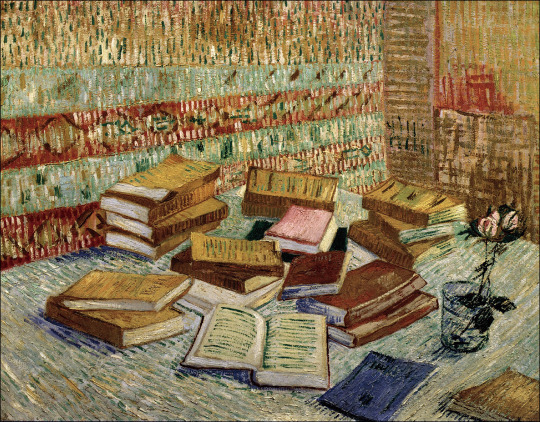
Stillleben mit französischen Romanen und Glas mit Rose (Still Life with French novels and glass with a rose), Paris, Autumn 1887.Vincent van Gogh, 1853-1890. Oil on canvas.
1K notes
·
View notes
Text

Chinese Mung Bean Cakes with Pumpkin Fillings (Vegan)
193 notes
·
View notes
Text

中秋節快樂 HAPPY MID AUTUMN FESTIVAL TO ALL MY BUNNIES OUT THERE
62 notes
·
View notes
Text
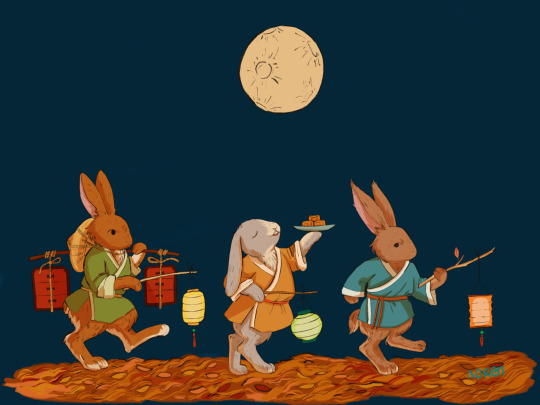
the procession...
happy mid-autumn festival!
97 notes
·
View notes
Text
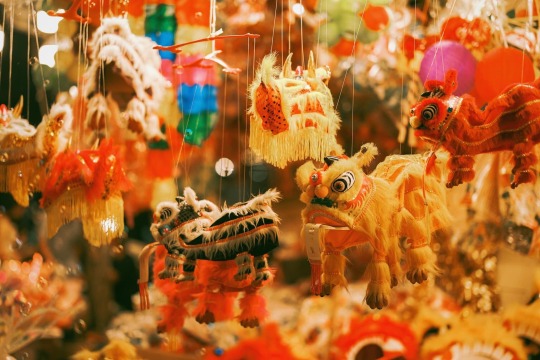








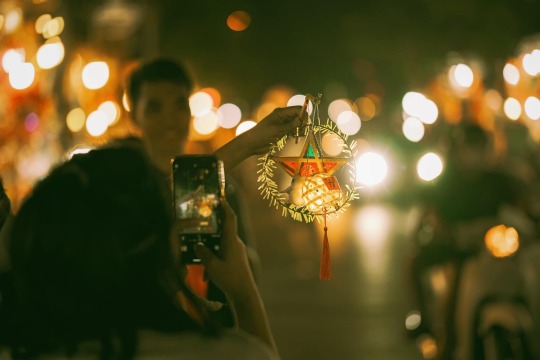
Lanterns on display for Mid Autumn festival in Hanoi, Vietnam. Credit to Đức Nguyễn.
374 notes
·
View notes


















